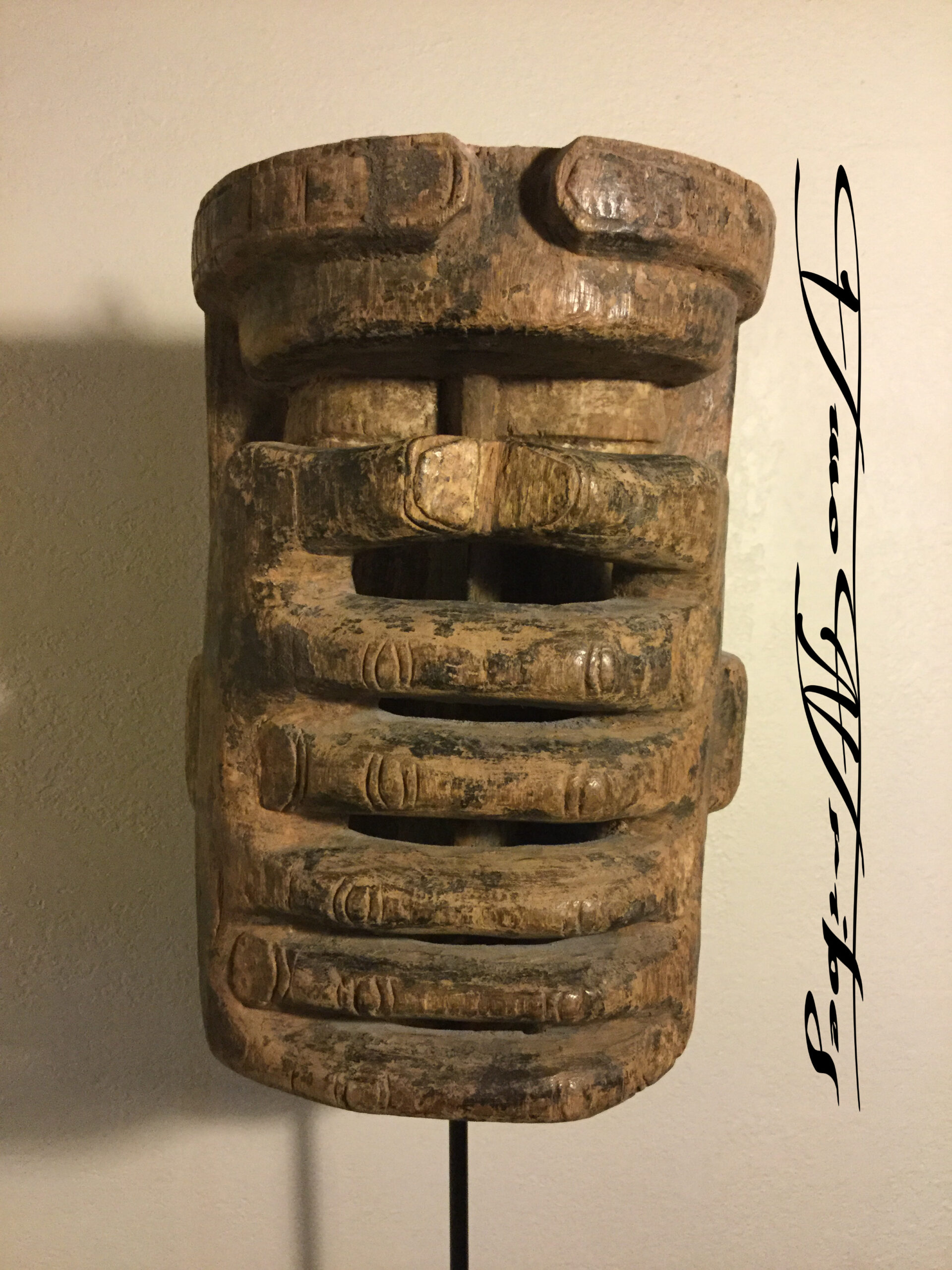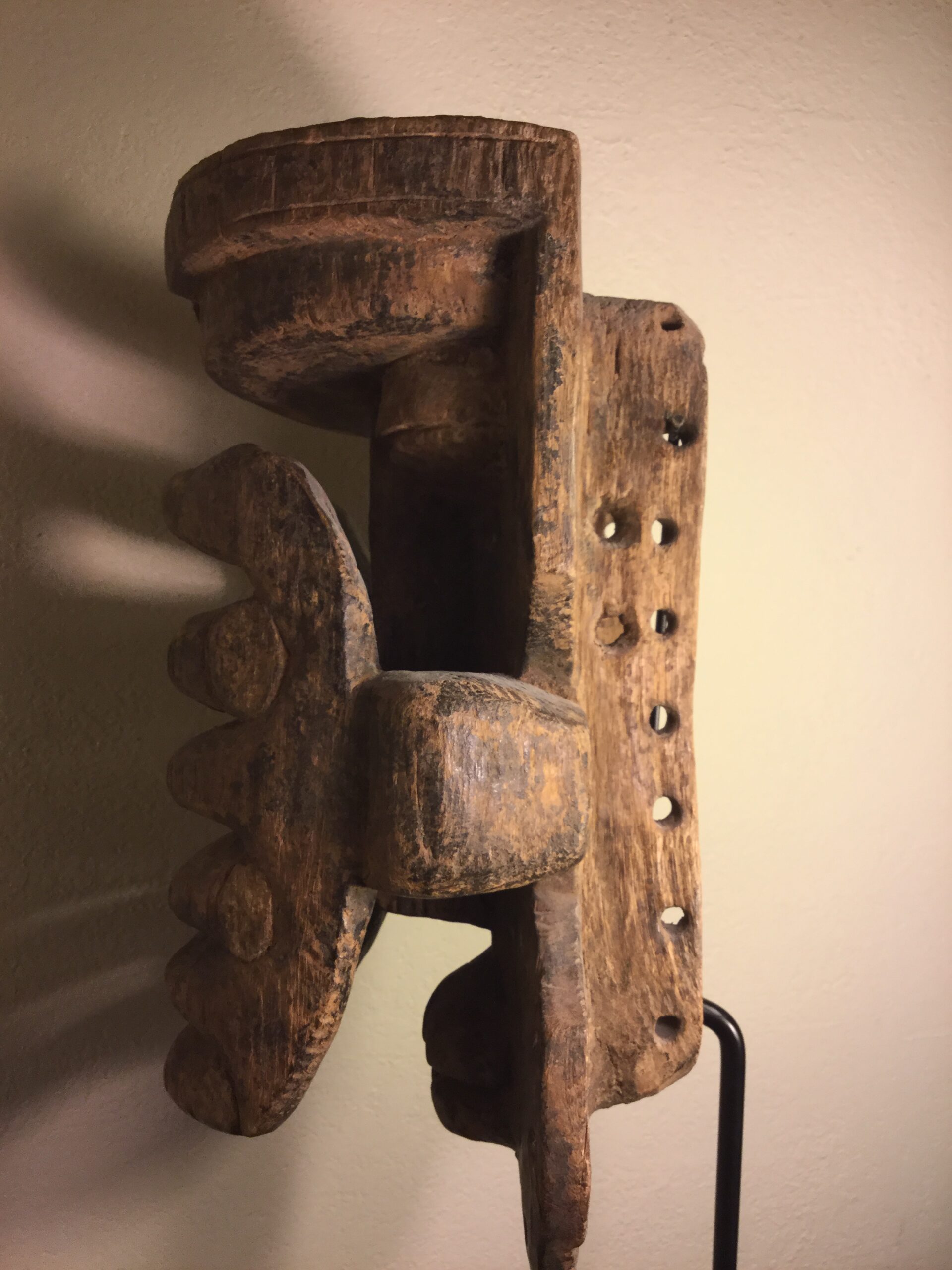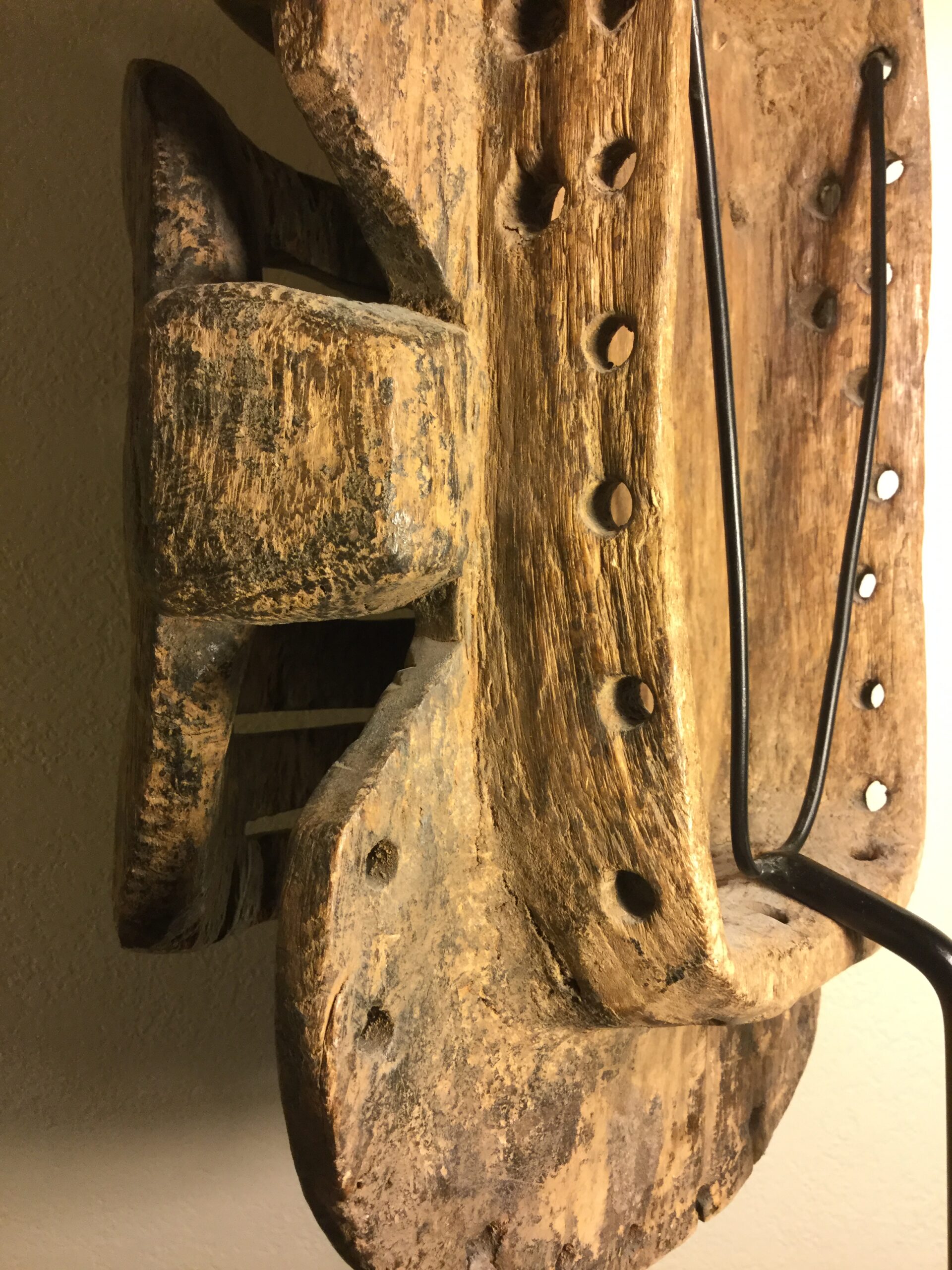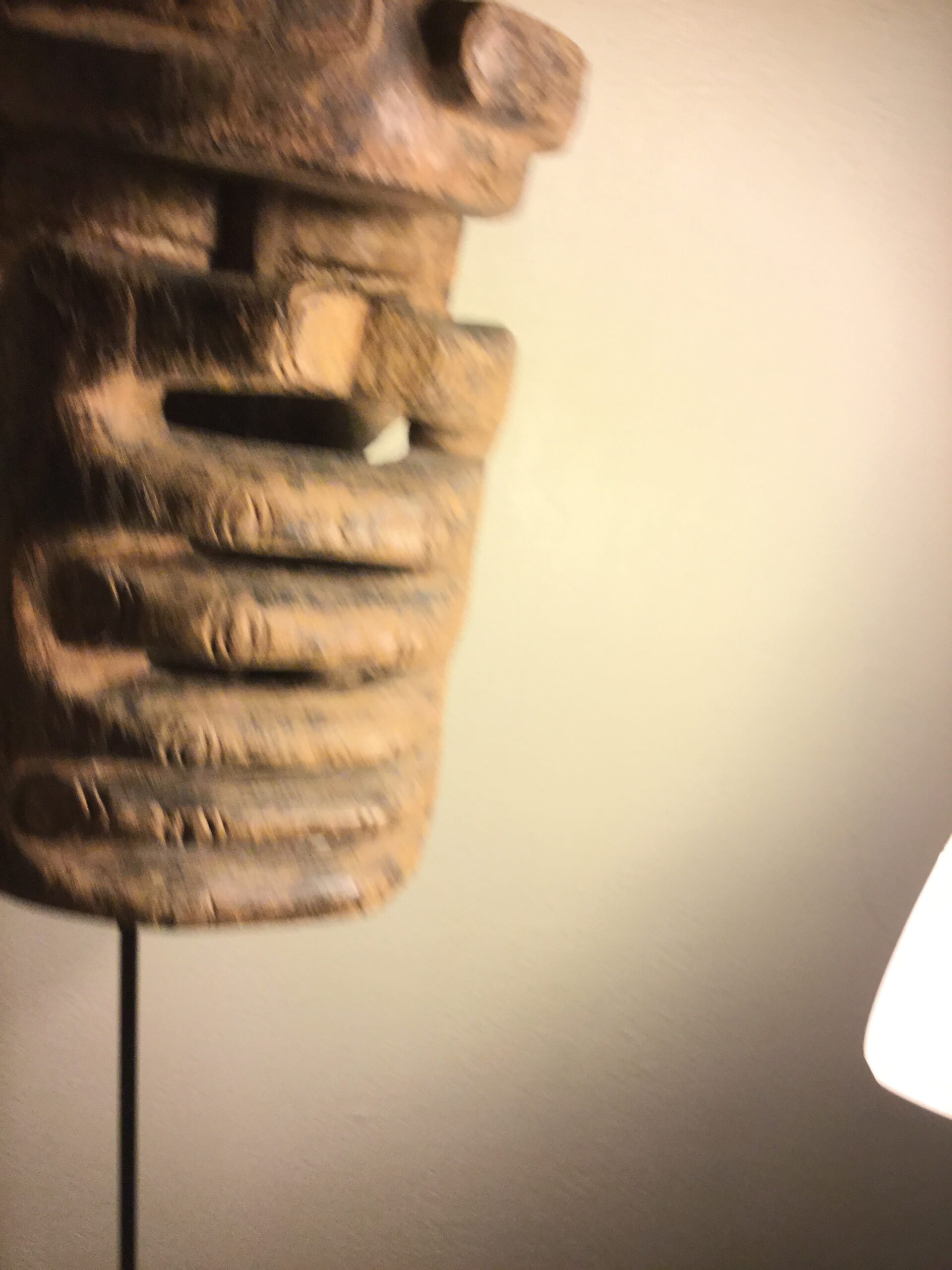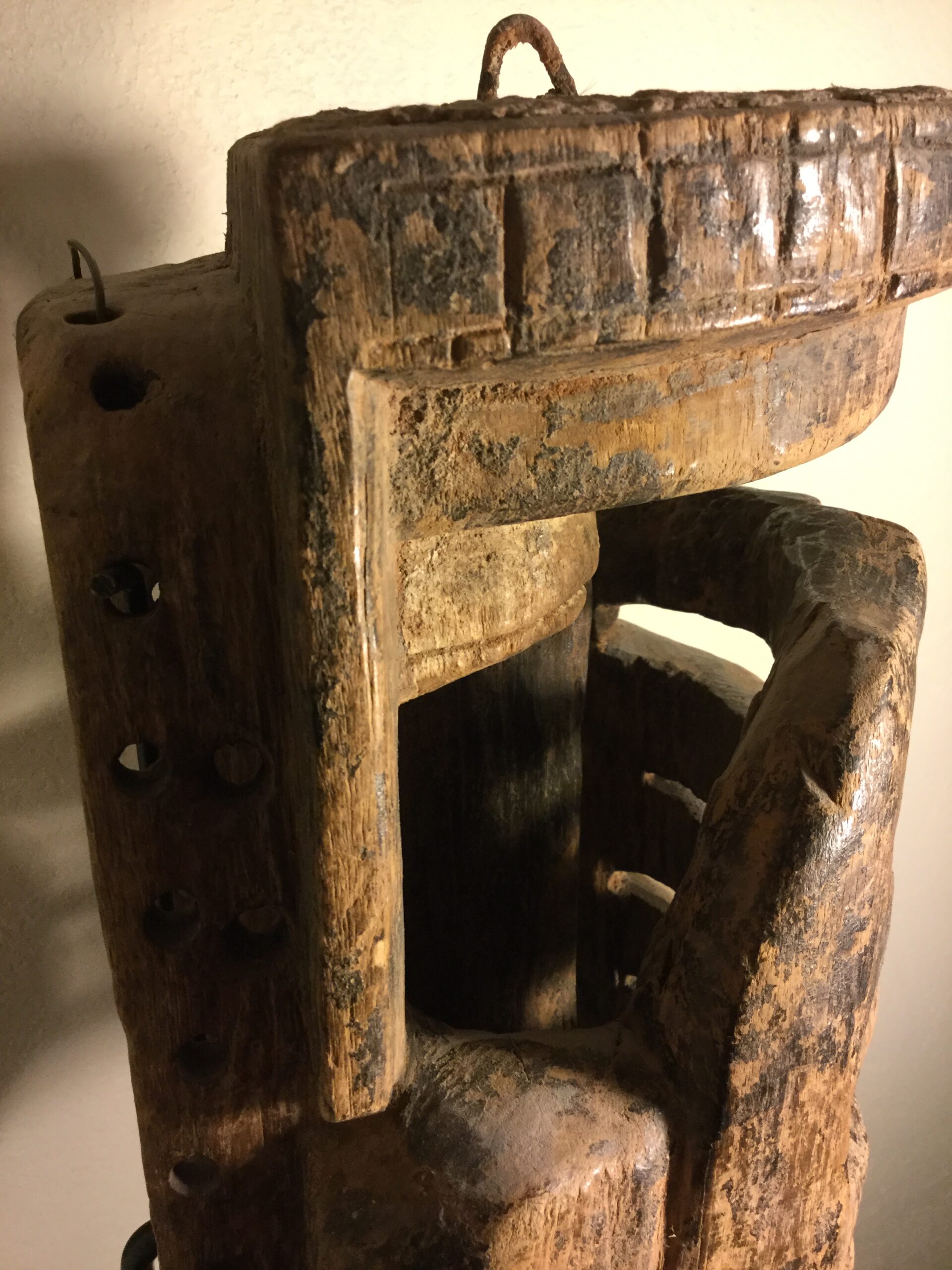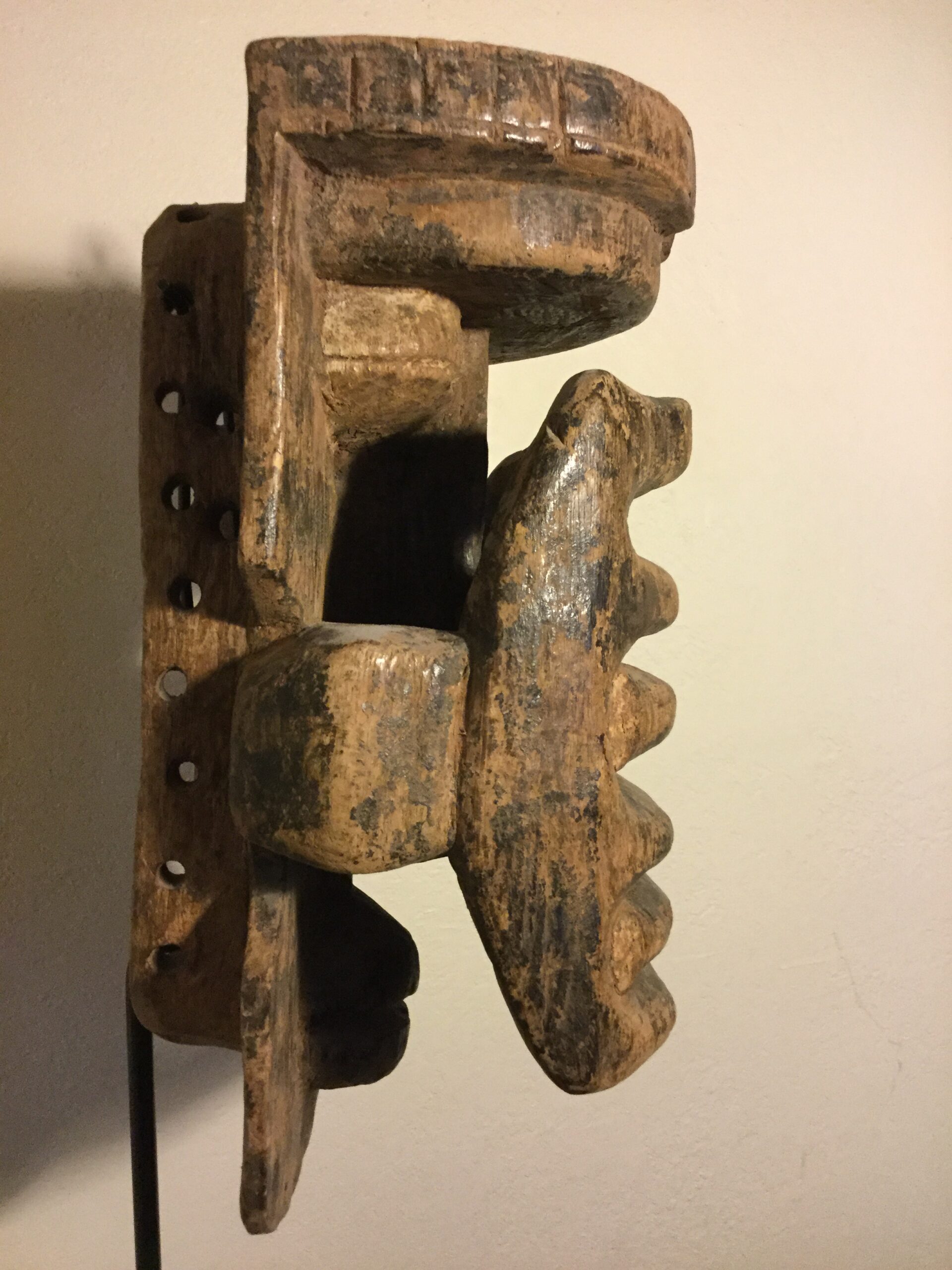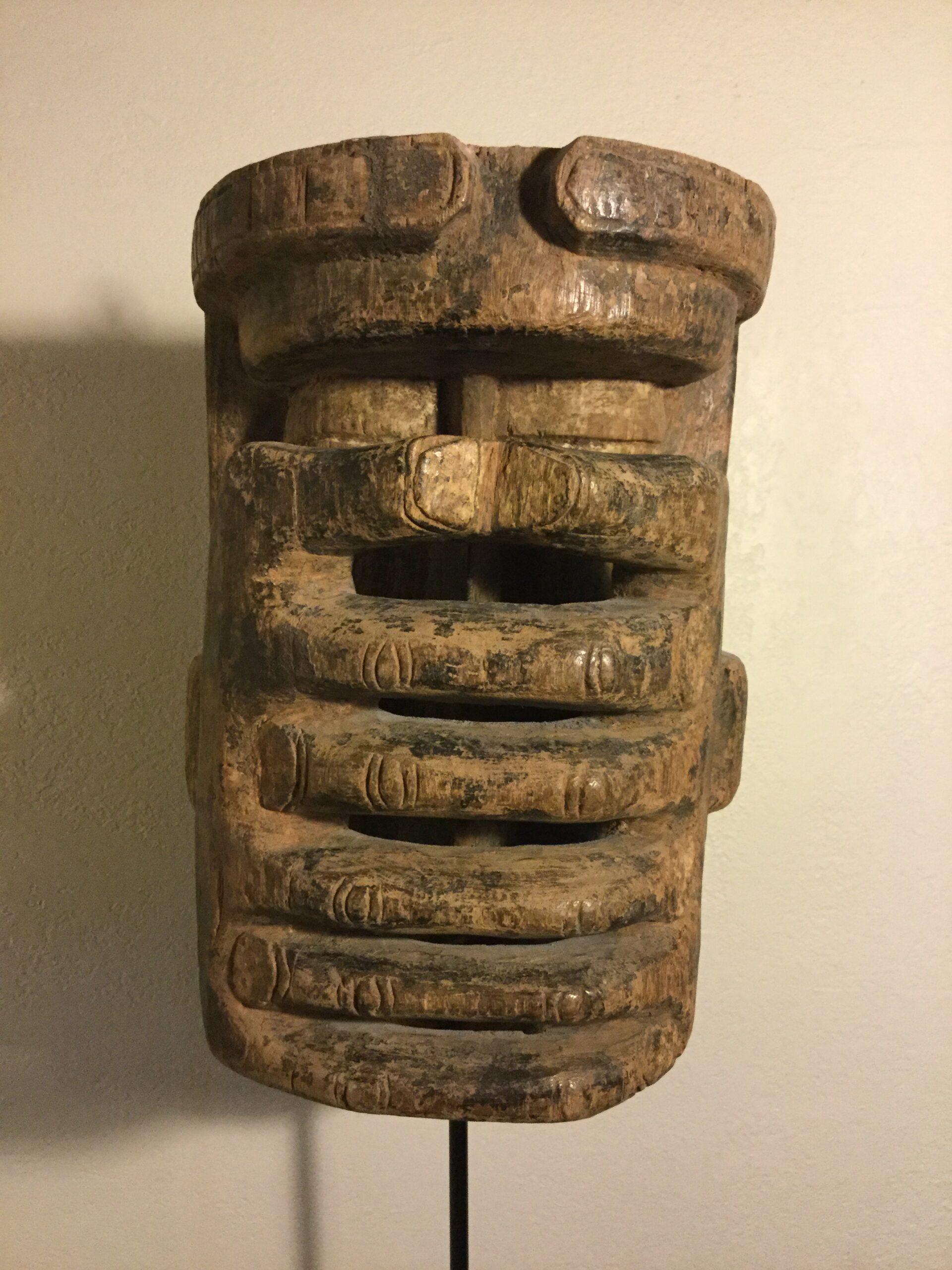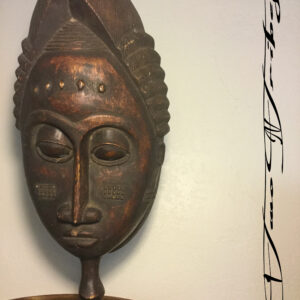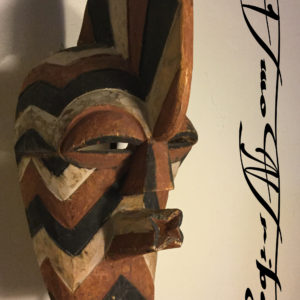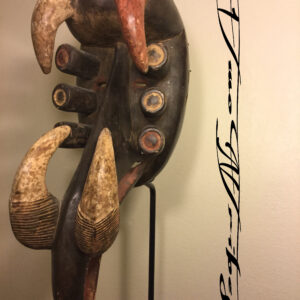Description
The Côte d’Ivoire is the home to the Bete — they live in the southwestern part of the country, between the Akan ethnic groups to the east and the Guro tribe to the north. They number about 600,000 and are an agricultural group. Patrilinear, the Bete live – under the ancestors’ authority – in small “headless” villages. Historically they were hunters, but nowadays they also farm. They grow what is needed for a subsistence economy. They also have linked to the market economy and much of their effort is devoted to the cultivation of cacao and coffee. Religion, omnipresent in Bete life, aims to maintain a harmonious relationship between nature and the ancestors who are responsible for the welfare of the tribe. Today the vast majority still follow their traditional African religion, believing in a creator God Lago, but do not pray to or worship him. Instead they seek help from many lesser spirits supposed to have supernatural power to help them, or give protection–spirits of their ancestors, spirits that inhabit trees, rivers, rocks, etc. They observe many customs and taboos and make sacrifices of eggs, chickens, cows, etc. Each ritual focuses on the maintenance and care of good relations with the world of ancestors, so as to assure the protection of the lineages. The religious cults give rise to numerous mask performances, during the course of which the music assumes fundamental importance. The apprenticeship of male youngsters particularly concentrates on the mastery of these arts. In fact, within a village context the men form into veritable dance societies, membership in which is indispensable.
